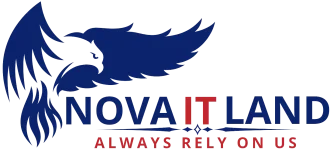“`html
Understanding AI-Generated Content Copyright in 2024
With the rapid growth of artificial intelligence, many content creators, businesses, and developers are asking a pressing question: can AI-generated content be copyrighted? The U.S. legal system is adapting to this evolving landscape, shaping copyright laws to determine whether AI-generated text, images, and other media qualify for protection. In this article, we break down what U.S. law says about AI-generated content copyright in 2024 and how it impacts creators and businesses alike.
What Is AI-Generated Content?
Before diving into the legal aspects, it’s essential to define AI-generated content. This term refers to any digital material—such as articles, artwork, music, videos, and programming code—created using artificial intelligence. AI-powered tools, including ChatGPT, DALL-E, and Stable Diffusion, leverage machine learning algorithms to produce new content based on existing data patterns. These advancements provide efficient solutions for content creation, making them highly attractive to marketers, businesses, and individual creators.
Can AI-Generated Content Be Copyrighted?
The question of whether AI-generated content qualifies for copyright protection has sparked considerable debate. As of 2024, U.S. copyright law mandates that only works created by human authors can receive legal protection. The U.S. Copyright Office has reaffirmed this stance, emphasizing that AI-generated material, without human creativity, does not meet the necessary criteria for copyright eligibility.
In some cases, if an AI-generated piece is substantially modified by a human creator, that specific modification may be copyrightable. However, the original AI-generated content itself remains in the public domain, meaning it can be freely used, distributed, and reproduced without legal restrictions.
Key Copyright Office Guidelines for AI Content
The U.S. Copyright Office has issued multiple guidance statements on AI-generated materials, outlining the following key points:
- A work must be the result of human creativity to be eligible for copyright protection.
- AI tools that autonomously generate content without human modification are not subject to copyright.
- Creative input from a human, such as substantial edits or enhancements, may qualify for copyright protection, but only that specific human-created portion is protected.
Legal Precedents and Case Studies
Recent legal decisions reinforce the Copyright Office’s view on AI-generated content. In one notable case, a creator attempted to copyright an AI-generated artwork with minimal human intervention. The Copyright Office denied the request, citing the lack of direct human authorship.
Past court rulings have set additional precedents. For instance, the infamous monkey selfie case (Naruto v. Slater) ruled that animals cannot hold copyright, a ruling that parallels AI-generated content. Because AI tools, like the monkey in that case, lack human authorship, they do not qualify for copyright protection.
Implications for Content Creators and Businesses
AI-generated content presents both opportunities and challenges for businesses and content creators. Since AI-generated materials are not copyrightable, they can be freely used by anyone. This means companies leveraging AI for marketing campaigns must implement branding strategies to maintain exclusivity and prevent unauthorized reuse by competitors.
How to Protect AI-Inspired Work
Businesses and creators hoping to protect their work can explore alternatives to copyright protection:
- Trademark Protections: While AI-generated content itself cannot be copyrighted, branding elements such as logos and slogans can be protected through trademarks.
- Contractual Agreements: Companies can use exclusive contracts to retain proprietary rights over AI-generated materials.
- Creative Modifications: Making substantial human edits to AI-generated works allows portions of the content to qualify for copyright protection.
The Future of AI and Copyright Laws
As AI technology advances, the legal landscape is likely to evolve. Several proposals and discussions are currently underway to reconsider the role of AI in copyright legislation. Countries worldwide are addressing similar concerns, and future U.S. laws may adapt to better accommodate these rapid technological shifts.
One potential solution could involve hybrid copyright models, where AI-assisted works with significant human input become partially protected. This regulatory shift would provide a middle ground for ensuring fair use while recognizing human contributions to AI-generated content.
Conclusion
AI-generated content copyright remains a complex and evolving topic. Under current U.S. law, content solely produced by artificial intelligence cannot be copyrighted. Businesses and creators must navigate these challenges by implementing branding strategies, exploring alternative protections, and keeping up with legal developments.
For businesses looking to enhance their digital presence with AI-enhanced content strategies, professional digital marketing and SEO services can provide tailored solutions. Explore digital marketing services to maximize content effectiveness while staying compliant with evolving copyright laws.
“`
